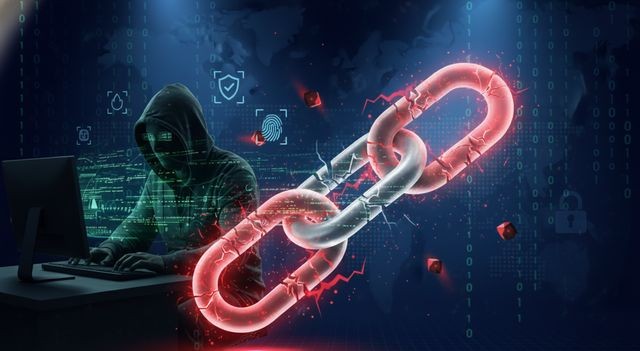In an era of digital transformation, the manufacturing industry is undergoing a profound shift with the adoption of smart technologies, Industrial Internet of Things (IIoT), and automation. However, with these advancements come significant cybersecurity risks, making the role of the Chief Information Security Officer (CISO) more critical than ever. Despite the growing threat landscape, many manufacturers have yet to fully grasp the importance of having a dedicated cybersecurity leader to safeguard their digital infrastructure, supply chains, and intellectual property.
Why Manufacturers Need a CISO Now More Than Ever
Manufacturers today are facing an increasing number of cyber threats targeting their operational technology (OT) and IT systems. Traditionally, cybersecurity in manufacturing has been an afterthought, with a greater focus on physical security and production efficiency. However, the surge in cyberattacks, such as ransomware and supply chain attacks, has forced the industry to rethink its approach.
The CISO’s role extends beyond implementing firewalls and antivirus software; it encompasses a strategic approach to cybersecurity that aligns with business objectives and ensures resilience in an interconnected environment. Key reasons why manufacturers should prioritize the appointment of a CISO include:
Protecting Intellectual Property (IP)
- The manufacturing sector is a prime target for cybercriminals and nation-state actors seeking to steal proprietary designs, production processes, and trade secrets.
- A CISO can establish robust security measures, such as data encryption, access controls, and cybersecurity awareness training to protect valuable IP from theft and corporate espionage.
Securing Operational Technology (OT) and IT Convergence
- The convergence of OT and IT introduces new vulnerabilities, as legacy manufacturing systems were not designed with security in mind.
- A CISO can oversee the integration of security frameworks that address both IT and OT environments, ensuring comprehensive protection across the entire manufacturing infrastructure.
Compliance with Industry Regulations and Standards
- Regulatory frameworks such as NIST 800-171, ISO/IEC 27001, and IEC 62443 mandate stringent cybersecurity requirements for manufacturers, particularly those involved in defense and critical infrastructure sectors.
- A CISO ensures compliance with these regulations, mitigating legal and financial risks while maintaining a strong security posture.
Mitigating Supply Chain Risks
- Manufacturers often rely on a vast network of suppliers and third-party vendors, which introduces cybersecurity vulnerabilities at multiple touchpoints.
- A CISO can implement supply chain risk management strategies, conduct vendor assessments, and ensure compliance with cybersecurity best practices to prevent supply chain disruptions.
Business Continuity and Incident Response
- Cyberattacks such as ransomware can bring production to a halt, resulting in substantial financial losses and reputational damage.
- A CISO develops and implements incident response plans, disaster recovery strategies, and proactive monitoring systems to minimize downtime and ensure business continuity.
A CISO in the manufacturing sector is responsible for building a culture of security while balancing operational efficiency. Some of their critical responsibilities include:
- Risk Assessment and Management: Conducting ongoing assessments to identify vulnerabilities in production lines, connected devices, and cloud-based systems.
- Cybersecurity Strategy Development: Designing a security roadmap that aligns with business goals and supports digital transformation initiatives.
- Employee Training and Awareness: Educating staff on cybersecurity best practices to reduce the risk of human error-related breaches.
- Incident Detection and Response: Implementing security operations centers (SOCs) to monitor real-time threats and respond swiftly to incidents.
- Investment in Emerging Technologies: Leveraging AI-driven threat detection, blockchain for supply chain security, and zero-trust frameworks to enhance overall cybersecurity resilience.
While the importance of a CISO cannot be overstated, they face unique challenges in manufacturing, including:
- Legacy Systems: Many manufacturers still rely on outdated systems that lack modern security features, making them susceptible to cyberattacks.
- Budget Constraints: Allocating resources for cybersecurity initiatives often competes with production priorities, requiring the CISO to demonstrate the ROI of security investments.
- Cultural Resistance: Transitioning from traditional manufacturing processes to cyber-secure smart factories requires a cultural shift, which can be met with resistance from employees and stakeholders.
The Road Ahead: Building a Secure Manufacturing Future
To thrive in the modern digital economy, manufacturers must recognize cybersecurity as a business enabler rather than an operational burden. Appointing a CISO and investing in a comprehensive cybersecurity strategy can provide manufacturers with the resilience needed to navigate the evolving threat landscape.
The manufacturing industry must embrace the role of the CISO as a strategic partner in safeguarding operations, ensuring regulatory compliance, and driving business growth. By taking a proactive approach to cybersecurity, manufacturers can future-proof their operations against emerging threats and maintain their competitive edge in an increasingly digital world.


